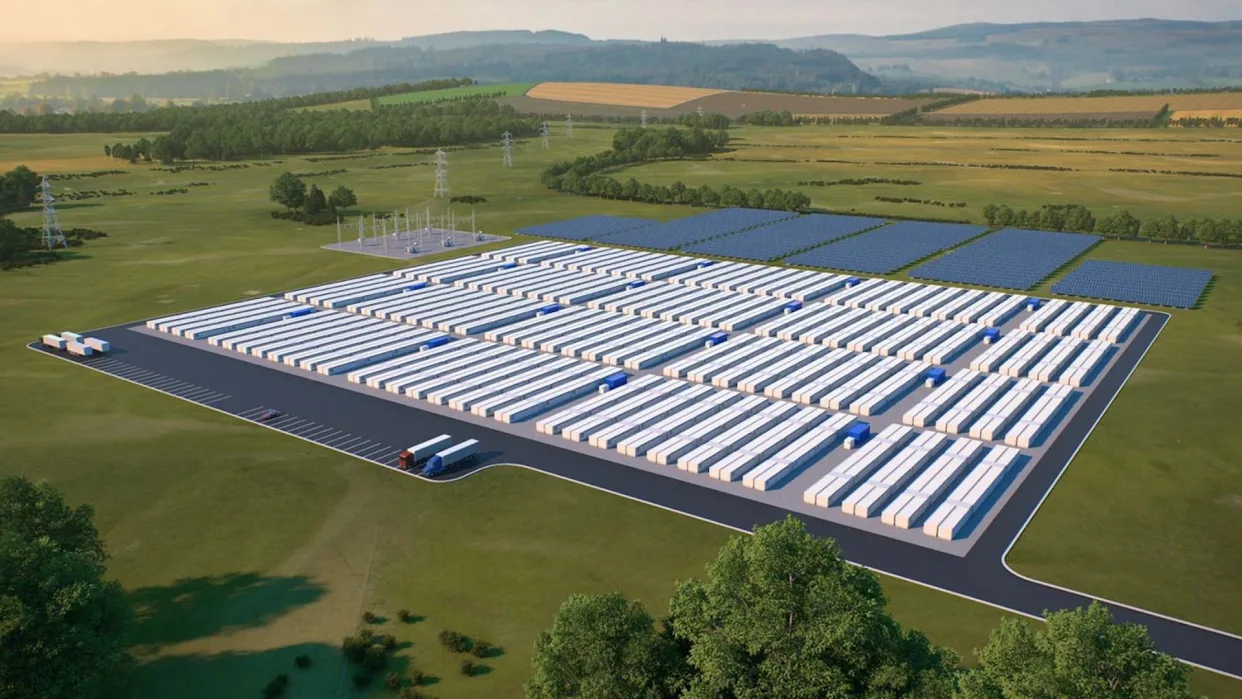
The federal government is making a $389 million investment in New England’s power grid, with an emphasis on better storing and transmitting renewable energy throughout the region. It will use the largest battery system developed so far in the world in terms of energy capacity, according to a press release on the allocation.
The effort hopes to maximize energy distribution from offshore wind farms that are in development. A unique iron-air battery from Massachusetts-based Form Energy is getting $147 million of the funding. The large battery, with unique chemistry, will store the abundant wind energy at a location in Maine, as Canary Media reports.
It’s all part of the U.S. Department of Energy’s Grid Innovation Program, a competitive funding opportunity. Through two rounds, the project has funded 65 projects worth $5.7 billion in the eastern and western parts of the country, according to a DOE chart.
“We look forward to working with the New England States as we support projects that will harden systems, improve energy reliability, and affordability — all while generating union jobs for highly skilled workers,” DOE Grid Deployment Office Director Maria Robinson said in the press release.
The overall project is called Power Up New England and involves the collection of states in that region, per Canary.
The original description stated a goal to “unlock” as much as 4,800 megawatts of offshore wind, with the battery capacity to store it. A New York-to-New England transmission line called the Clean Resilience Link is also part of the overall effort in the Northeast, per a Massachusetts government press release.
The iron-air battery from Form Energy has been making headlines as a cheaper, scalable, and efficient storage unit. The power pack can amazingly store and distribute electricity as rust inside of it turns to iron and rusts again. It leverages chemistry that uses simple ingredients like iron, air, and water, according to Form.
The company said it can also more cleanly prepare iron for steel-making sans fossil fuels and hot furnaces, a bonus secondary use for the process. Continuing the metal connection, Canary reports that Form has completed construction on a factory in Weirton, West Virginia, a traditional steel town.
In New England, iron-air batteries will distribute up to 100 hours of energy to communities, providing crucial grid support if all goes according to the plans.
“Power Up is a big win for electric customers and continues the momentum of federal partnership and regional collaboration here in New England,” Massachusetts Lt. Gov. Kim Driscoll said in the press release.
It’s all a part of the transition to renewable energy sources. Reducing heat-trapping air pollution is critical to avoiding what the Massachusetts Institute of Technology calls worst-case environmental scenarios if planet-warming proceeds unchecked, a bane to human and planet health alike, as medical experts and scientists noted.
“Extreme weather events fueled by climate change will continue to strain the nation’s aging transmission systems, but [these projects will] ensure America’s power grid can provide reliable, affordable power,” Robinson said.
There are ways to contribute, even if you don’t live in a community that is part of a grant-funded program. Washing your clothes on the cold cycle is a great way to save money and reduce energy use. Astoundingly, about 90% of a washer’s power is used to heat water.
At Form, reusing defunct sites as part of its battery infrastructure is another layer of its efficient planning. The New England battery system will be located at a former paper mill, for example.
“This iron-air battery system will have the most energy capacity of any battery system announced yet in the world,” Form CEO Mateo Jaramillo said in the press release.

